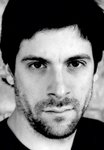Curfew imposed on Rangoon Fred Attewill
Ian MacKinnon Tuesday September 25, 2007
Guardian Unlimited
There were fresh signs of the Burmese junta's determination to cling on to power tonight with reports of a curfew being imposed on the country's largest city, Rangoon.
Residents said a 9pm to 5am curfew had also been announced for the city of Mandalay after a day in which tens of thousands of Buddhist monks and their supporters marched throughout the country in defiance of the military regime.
It was also reported the government - which is facing the most serious threat to its power since 1988 - had also imposed a ban on groups of more than five people gathering.There were ominous claims tonight the opposition leader Aung San Suu Kyi, who has been under house arrest since 2003, had been moved to the notorious Insein prison after appearing in front of her house to greet marching monks on Saturday.
The Reuters news agency quoted a well-placed source saying she had been moved on Sunday. If confirmed it would mark a hardening of the regime's position.
Truckloads of troops were sent on to the streets of Rangoon earlier today, where up to 50,000 marched despite the presence of army trucks near the Shwedagon pagoda - the most overt sign of a possible security crackdown after six days of demonstrations during which the army has remained in barracks.
Vehicles fitted with loudspeakers toured the city, warning people not to join the monks in what has become the greatest challenge to the military dictatorship in almost two decades.
The announcements said anyone taking part in, or supporting, the monks' demonstrations faced prosecution, threatening to use military force to disperse any fresh "illegal" protests. Yesterday the crowds swelled to 100,000.
Burma Campaign UK claimed troops had infiltrated the demonstrators disguised as monks, planning to spark violence to justify a crackdown.
There were unconfirmed reports that hospitals were preparing for patients and prisons had been cleared to make room for arrests.
However, there were no reports of clashes with demonstrators today.
The protests began last month after the government sharply raised fuel prices, but have escalated into a broader, anti-government movement, with the monks chanting for democracy.
So far, Burma's military leadership has remained uncharacteristically quiet, its silence emboldening ever greater numbers to take to the streets.
But fears are growing of a repeat of the 1988 pro-democracy uprising, which was broken up by troops who killed up to 3,000 people.
Amid growing international protest, the Nobel Peace laureate Archbishop Desmond Tutu praised the "courage of the people of Burma", adding in a statement: "It is so like the rolling mass action that eventually toppled apartheid" in South Africa.
The UN secretary general, Ban Ki-moon, praised the peaceful nature of the protests and voiced his hopes that authorities in the country would "seize this opportunity to engage without delay in dialogue with all the relevant parties to the national reconciliation process".
Today's demonstrations were accompanied by other, smaller, protests in the second city, Mandalay, but they took place amid heightened tension - a sharp contrast to yesterday, when the mood was described as relaxed and "euphoric".
As the monks, in maroon-coloured robes, left the Shwedagon pagoda, thousands of people cheered and clapped and linked arms to protect the protesters. MPs from Aung San Suu Kyi's National League for Democracy also took part.
Around 400 students, some carrying a peacock flag that became the symbol of the 1988 protests, also showed their defiance of the military threats. The fact that such unprecedented demonstrations should continue in the face of warnings of a crackdown is a mark of the depth of anger felt towards a regime that has hobbled the economy and left many suffering dire economic hardship.




Nenhum comentário:
Postar um comentário